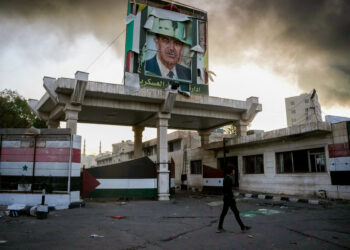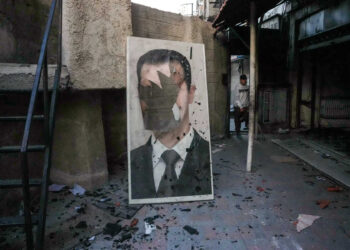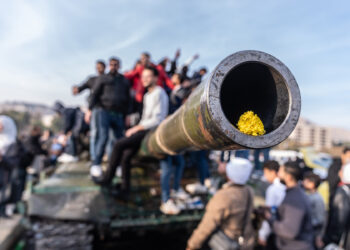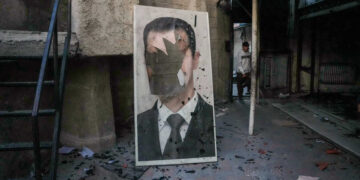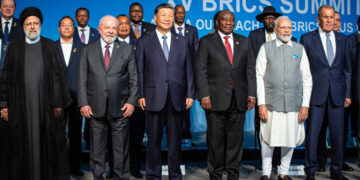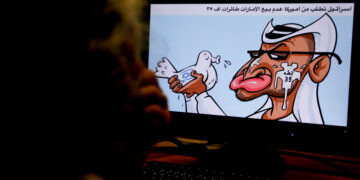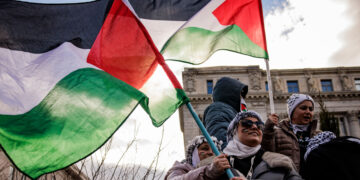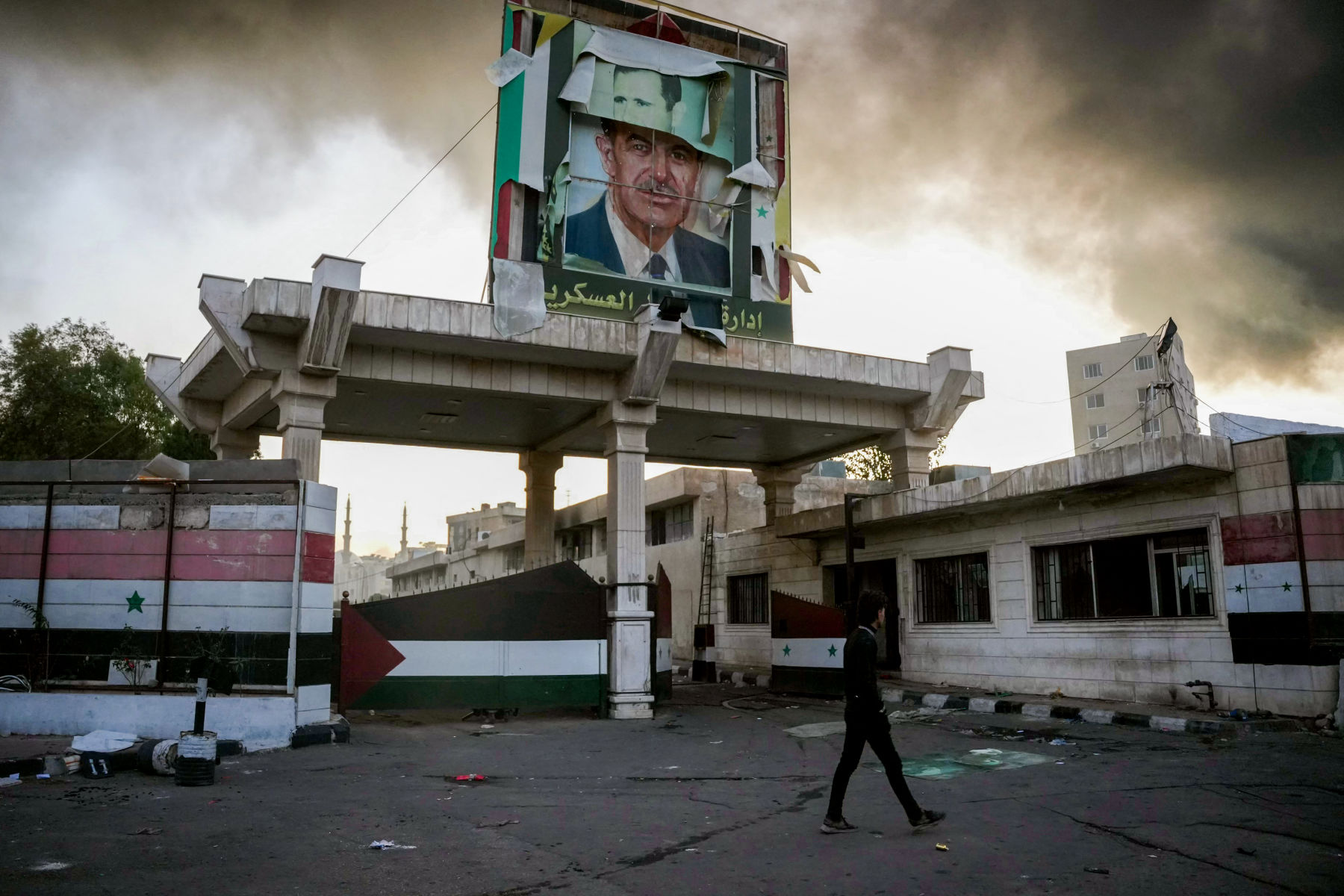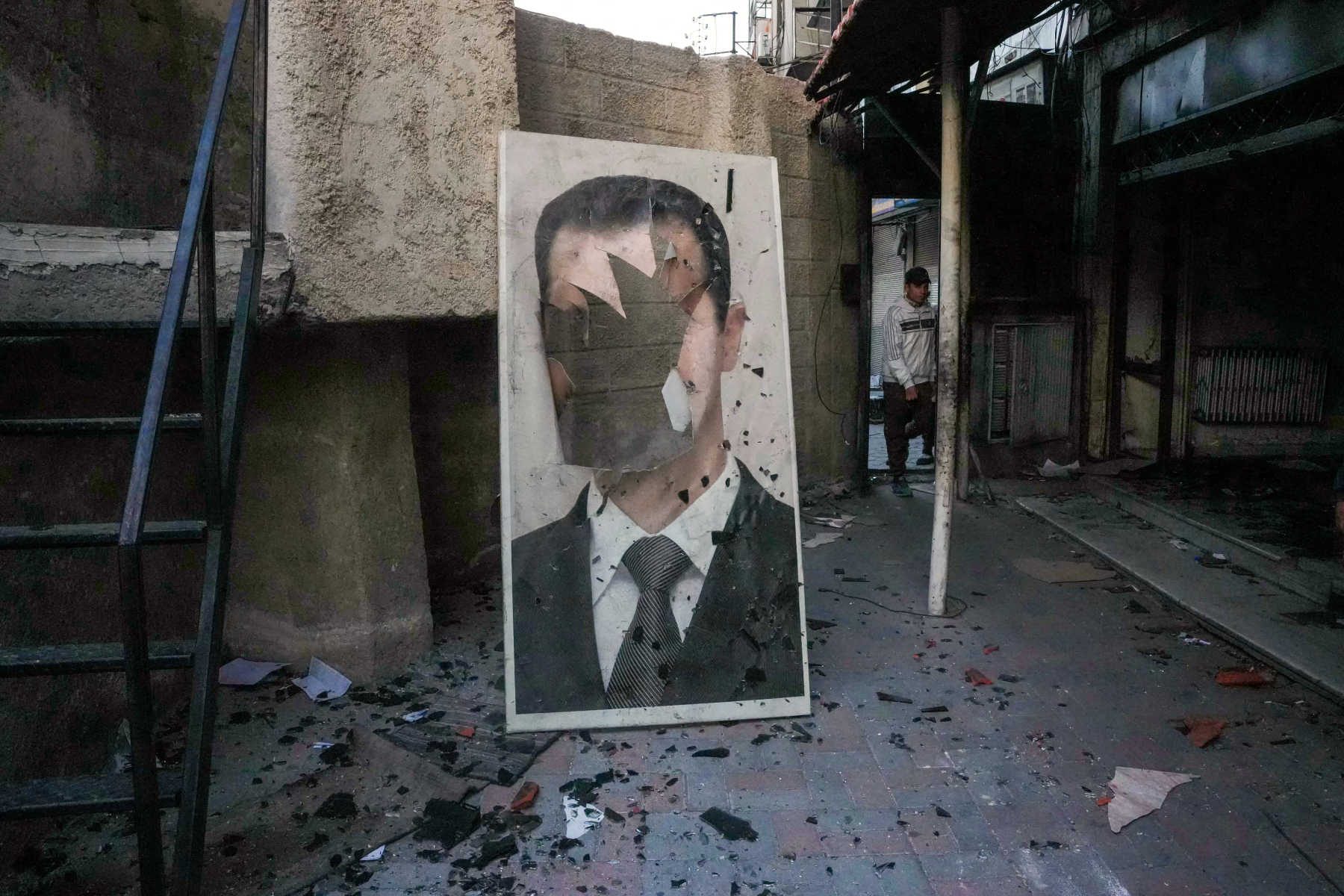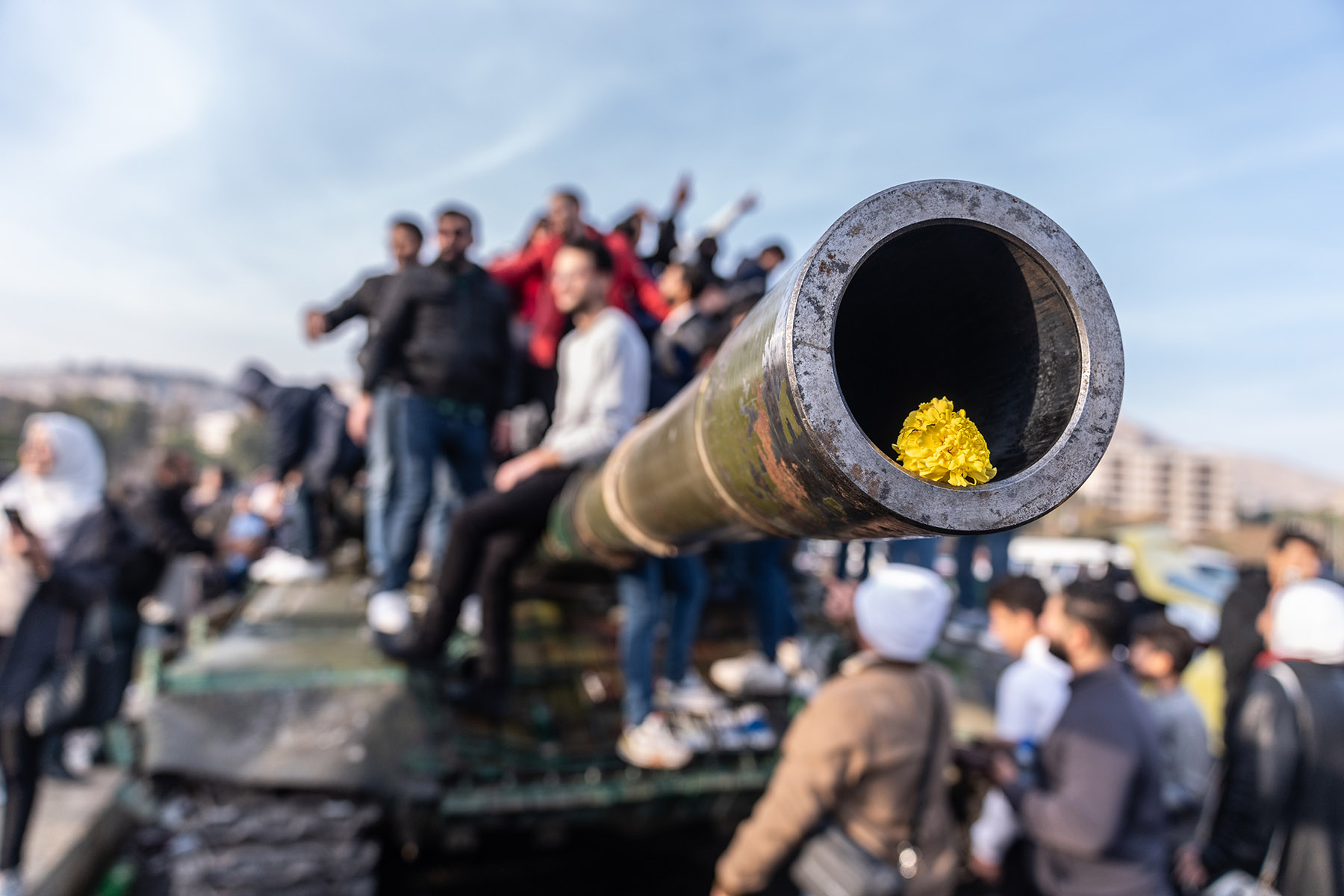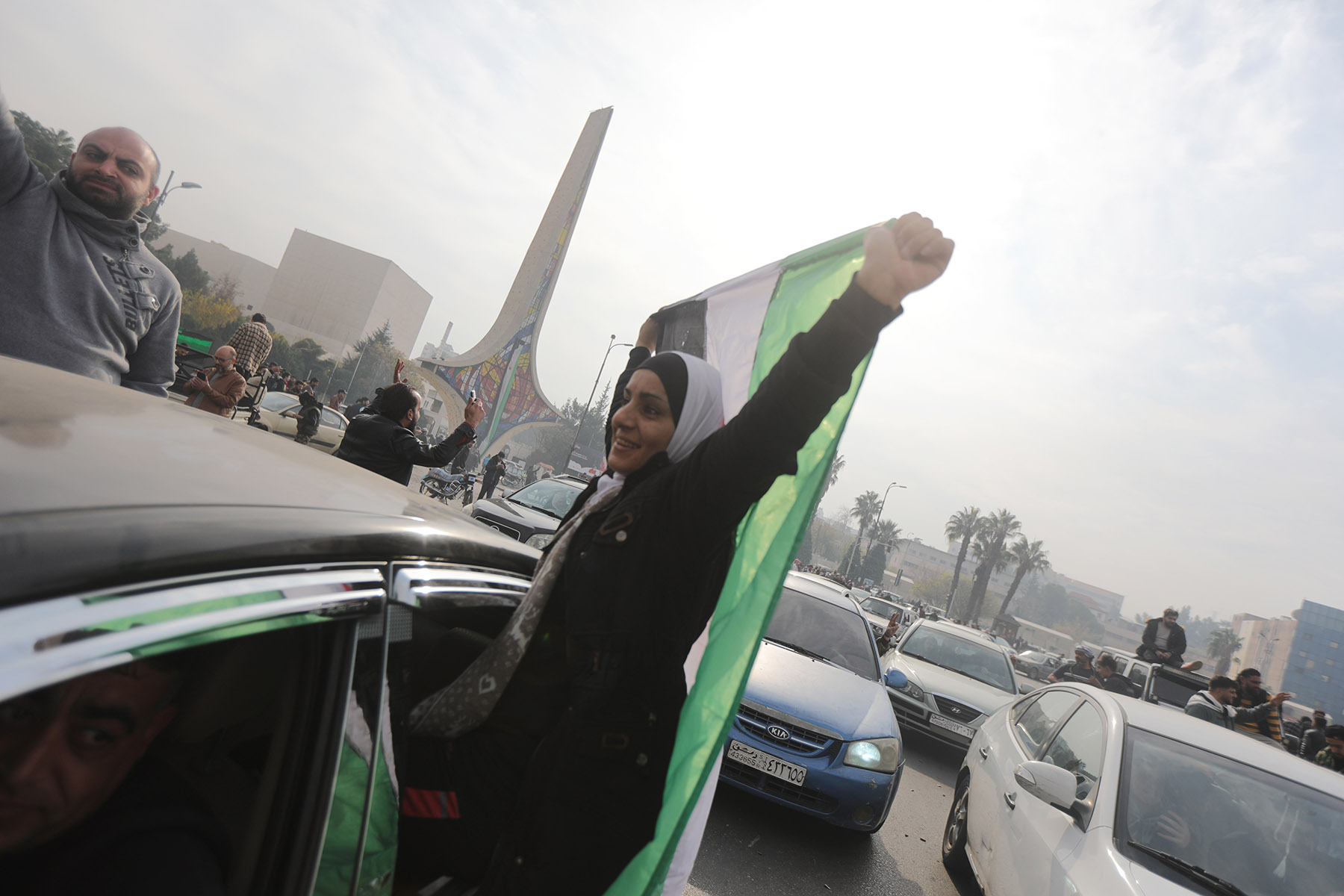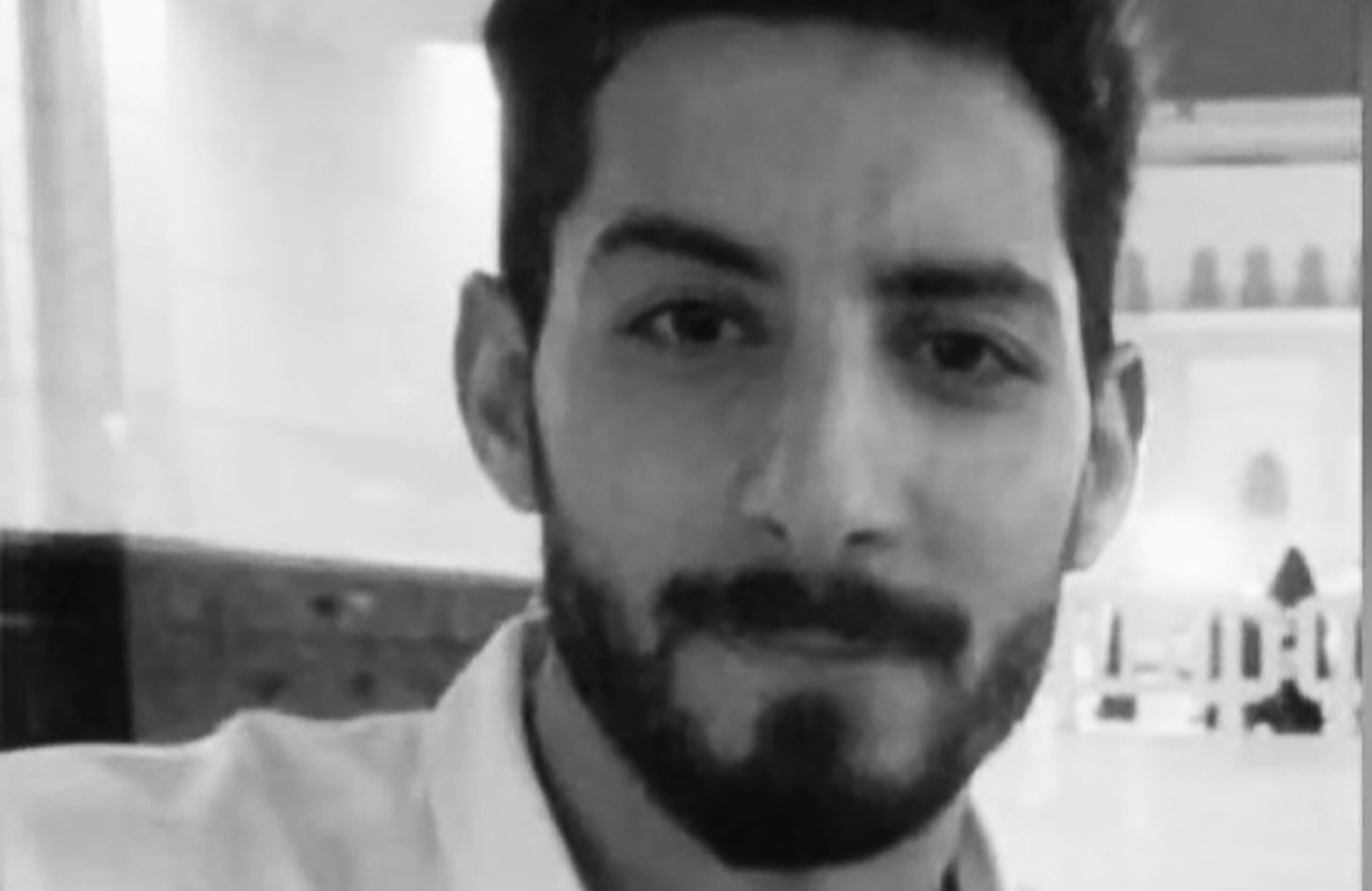Omid Memarian, a journalist, analyst and recipient of Human Rights Watch's Human Rights Defender Award, is the Director of Communications at DAWN.
Editor's note: On Friday, Nov. 10, Ghassan Abu-Sittah shared the following update from Gaza with DAWN. As Israeli forces besieged al-Shifa Hospital, Gaza's largest medical facility, thousands of Palestinians who had sought shelter there were forced to flee south, leaving critically wounded patients, including newborn babies, and dwindling medical staff stranded at the hospital.
"So today saw the final collapse of the health system, at least in the northern part of Gaza. Currently, the only functioning hospital in Gaza City is Al-Ahli Baptist Hospital, or what was left of it after the missile attack.
Initially, we had been just running it on a reduced basis and just bringing patients to operate on them here. But today, with the collapse of Shifa Hospital, we got an influx of patients from Shifa, and the Israelis had been targeting the schools around here that were shelters for the internally displaced. So we got an influx of wounded.
Currently, we've turned the hospital grounds into a makeshift field hospital, with a trauma stabilization point with the Palestine Red Crescent Society.
As I speak, the sound of tank shells is exploding everywhere around the hospital.
There's only a handful of doctors and nurses left at Shifa with the most critically wounded. All the other hospitals in Gaza have collapsed, and the Indonesian Hospital has run out of fuel. Tonight, there are sounds of running gun battles. There's tank fire. There's small arms fire. There's machine gun fire.
So God forbid, this is going to last for a while."
*
Earlier this month, British-Palestinian surgeon Ghassan Abu-Sittah once again left his home and medical practice in London to go to Gaza to treat Palestinians wounded in another Israeli bombing campaign. He was last in Gaza in May 2021, during the 11-day war between Israel and Hamas, when he worked nonstop to treat the injured—many of them children—and perform emergency reconstructive surgery. For the past 15 years, Abu-Sittah has traveled to the besieged strip to care for the injured during every wave of Israeli airstrikes since Hamas took control of Gaza. He also worked as a surgeon in Gaza during the Second Intifada and, before that, during the First Intifada, in 1987, when he was a medical student.
Few have his first-hand knowledge and expertise about Gaza's shattered health system. Or the perspective on what he calls "Israel's cyclical wars against Gaza," which he has witnessed up close in overcrowded hospitals that have become makeshift bomb shelters.
He spoke to Democracy in Exile via WhatsApp earlier this week. "The numbers will rise once the rubble is lifted," he warned of the growing death toll in Gaza, which now exceeds 7,000 people—40 percent of them children—according to health officials there, along with more than 15,000 wounded. "There are around 1,500 to 1,600 people who are reported missing and whose place of residence are the buildings that have been brought down" by Israeli airstrikes, he said. "The number will also rise because there's around 150 patients in intensive care on ventilators. They are critically wounded and some will just succumb to their wounds, particularly if there is no respite in the bombing and there is no humanitarian corridor to allow the arrival of medication and supplies."
In a previous interview with Democracy in Exile following Israel's May 2021 war in Gaza, Abu-Sittah said he knew would be back at al-Shifa Hospital—Gaza's largest medical facility and the hub of its entire health system—treating the wounded again before long. "The Israeli military leaders used to call this 'mowing the lawn,'" he said at the time, of Israel's periodic bombing of Gaza. "There's a bigger one on the horizon."
In this interview, Abu-Sittah provides a snapshot of what civilians in Gaza are going through, as the casualty figures change by the hour, and the level of destruction and suffering by ordinary people trapped in a war between Hamas and Israel.
The following transcript has been edited lightly for clarity and length.
The numbers and the speed and the ferocity and the intentional destruction of whole neighborhoods—it has all been completely out of proportion to anything.
- Ghassan Abu-Sittah
How has the lack of humanitarian support, the blockade and Israel's decision to block the shipment of fuel into Gaza, which could be used to keep hospitals running, affected your work?
The fact that there have been 15,000 wounded, that this comes after more than 15 years of siege, and that before the war, Gaza's whole health system had a bed capacity of 2,500, gives you an idea that the system started the war on its knees because of the siege. The sheer number of wounded, the sheer number of attacks, and now the intentional degradation of the capacity of the health system by targeting hospitals like Ahli Baptist Hospital, like Beit Hanoun Hospital, and since yesterday, the fact that fuel has run out in the Indonesian Hospital, which is the biggest hospital in northern Gaza, shows you how the system is unable to cope.
Add to that, everything is run out. We have no burns dressings; external fixators, which are the pins and rods that you need to fix fractures, are finished. You're really very careful in trying to choose what to use in every surgery, to try to conserve all of the consumables, supplies and medication that you have.
In your recent interview with Christiane Amanpour on CNN, you said, "We have now a term in Shifa Hospital called, 'wounded child with no surviving family.'"
A lot of kids are just being taken out of the rubble of their own homes. What's been happening is that people have been sheltering with relatives and you have multiple generations, up to 50 in one apartment, so you're getting multiple generations wiped out in every strike. Yesterday I had a 12-year-old. I had the daughter of a doctor before, whose mother was killed and sister was killed, her father isn't in Gaza. I have two little girls, five years old. I have another girl, eight years old, with burns. It's just full of these children.
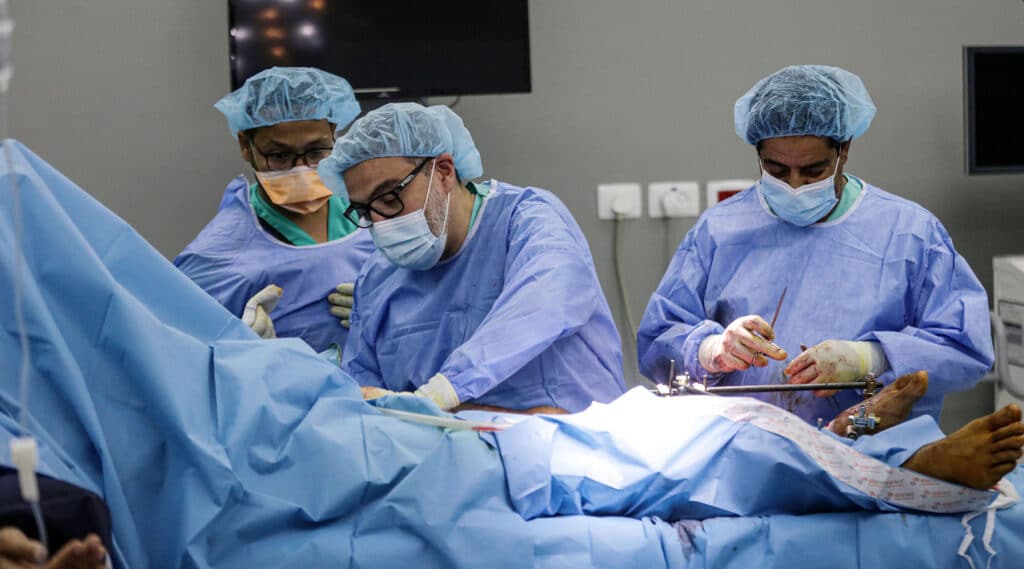
What is the status of the medical staff, in terms of the exhaustion of working long hours and under such harsh conditions? How much of the medical staff are local, and how much of it belong to international organizations or aid groups and charities?
People are not just physically exhausted—we've been doing 16 hours [a day] since this war started, if not more. They are emotionally exhausted, the scenes that they see. But also, we've lost so many members of staff. We've had 40 doctors killed, 18 nurses, and a lot of my colleagues have lost family. Almost all of them have had to move their families from their homes. Three of them lost their homes when the buildings that they live in were targeted. People are just completely spent.
There are no foreign staff. There's Médecins Sans Frontières [Doctors Without Borders], I'm with MSF. There's MSF local staff still left.
One of the doctors who was killed is Dr. Medhat Saidam. He's a plastic surgeon and a colleague in this department. I'd worked with him in the 2009 war and in 2014. And he was a lovely, lovely man. He was working that day, and his sister evacuated and came here. He just took her to his house, where he thought she'd be safe—and that's when the house was hit. Before that, I was doing surgery on the remaining child of an obstetrician at Shifa Hospital who was killed with her other daughter. Her husband is in Jordan on work.
What are the immediate needs of the medical staff, and those who are injured?
The immediate need is to transfer the critically ill and wounded patients out of Gaza, to open a humanitarian corridor and bring in the supplies.
The media, like everyone else, should speak out and prevent this impending catastrophe. I think the media needs to state that it is completely unacceptable, not just in the light of all of this carnage, but to then doubly deny the wounded the medical supplies that they need, and that includes fuel for the hospital. This is a double war crime.
How is the situation in the hospitals different now compared to past wars in Gaza, including in 2021? How is the scale of Israel's bombing felt in the hospitals and in the types of injuries you are treating?
You're comparing a flood with a tsunami. The numbers and the speed and the ferocity and the intentional destruction of whole neighborhoods—it has all been completely out of proportion to anything. Maybe the closest thing that happened in the region similar was during the Israeli siege of Beirut in 1982.
We're looking at days for the hospital to run out of fuel. If it does, then effectively the hospital becomes a mass grave.
- Ghassan Abu-Sittah
What have you seen yourself regarding Israeli airstrikes on hospitals or other places where so many civilians are sheltering?
I was at Ahli Baptist Hospital when it was attacked and the missile landed right in the middle of the courtyard, killing families that were sheltering there. The hospital had been receiving threats from the Israelis all week, saying that they were going to do this.
Can you elaborate on those Israeli threats and their impact on people sheltering in hospitals?
Basically, there's just no possibility of evacuating any of the hospitals. First, it's a war crime to even target hospitals, and threatening to do it, to evacuate people, does not make it less than a crime. It's just not possible. Shifa Hospital has around 1,700 critically wounded patients. What are we going to do with them? Where are we going to take them?
We're looking at days for the hospital to run out of fuel. If it does, then effectively the hospital becomes a mass grave. We have 150 patients ventilated. You have a neonatal intensive care unit. You have anesthetic machines that can no longer work to do the surgeries. Without electricity, this is just a mass grave.
The Israelis say that they bomb military targets and claim that Hamas uses civilians as human shields. From your first-hand experience, what should the world know about such claims?
There is no such thing. I mean, 16,000 human shields are now wounded and another 6,000 human shields are now dead? Even countenancing this kind of rubbish, I remember the same discourse around in 1982, with the Israelis doing the same thing to Beirut when they besieged it—that they were only targeting PLO fighters. And the problem is the West laps it up because the West is complicit in this murder.
The idea that somehow these amazing bombs are just targeting Hamas, and that there are these kind of super evil individuals who are hiding behind civilians—it's just, for people who heard it back in 1982, it's just the same tired argument and justification for murder.
The Biden administration pushed for 20 aid trucks to enter Gaza. Given the size of Gaza's population, the years of blockade and the level of destruction from Israeli's bombardment, what should really happen?
These trucks are so minuscule in terms of the needs that they constitute just tokenism. They will not have any discernible or even palpable impact on the outcome.
Can you describe your day, how you perform surgeries and care for the wounded during the bombings?
I barely leave the operating suite. I get up around 6:30, 7 a.m. if we haven't been woken up at night, and we start discussing the patients from a list at 8 a.m. We're hoping to start operating by 9 or 10 a.m., depending on availability of anesthetists. We continue operating till around 1 or sometimes 2 in the morning. I then clean one of the trolleys in the recovery part of the operating room, and I go to sleep. I get up and I do the same again.
Once every couple of days, I go out. The compound of the Shifa Hospital is heaving with people, tens of thousands of internally displaced. So it's not really a pleasant walk, and you don't want to be walking far from the hospital. It's been quite a claustrophobic existence so far.
With all that is happening, you and your colleagues are putting your lives on the line. How do you bear the stress and security concerns in these impossible situations? What motivates you to keep going?
The adrenaline of the surgery keeps your mind off the concerns and it helps you overcome the fatigue. But once in a while, there's a massive explosion close by and the whole building shakes and… you're jolted.
What do you expect President Biden or European leaders to do right now?
I expect absolutely nothing. They've made it clear by their trips to Israel and by their words. My feeling is the only thing that can change the course of events is that if the Americans feel that what is happening in Gaza is destabilizing to the Egyptian and Jordanian regimes. That's it. That is the only way that there will be a change in American policy or even an amelioration of American policy—and European policy, I think, is completely subservient to American foreign policy.

















